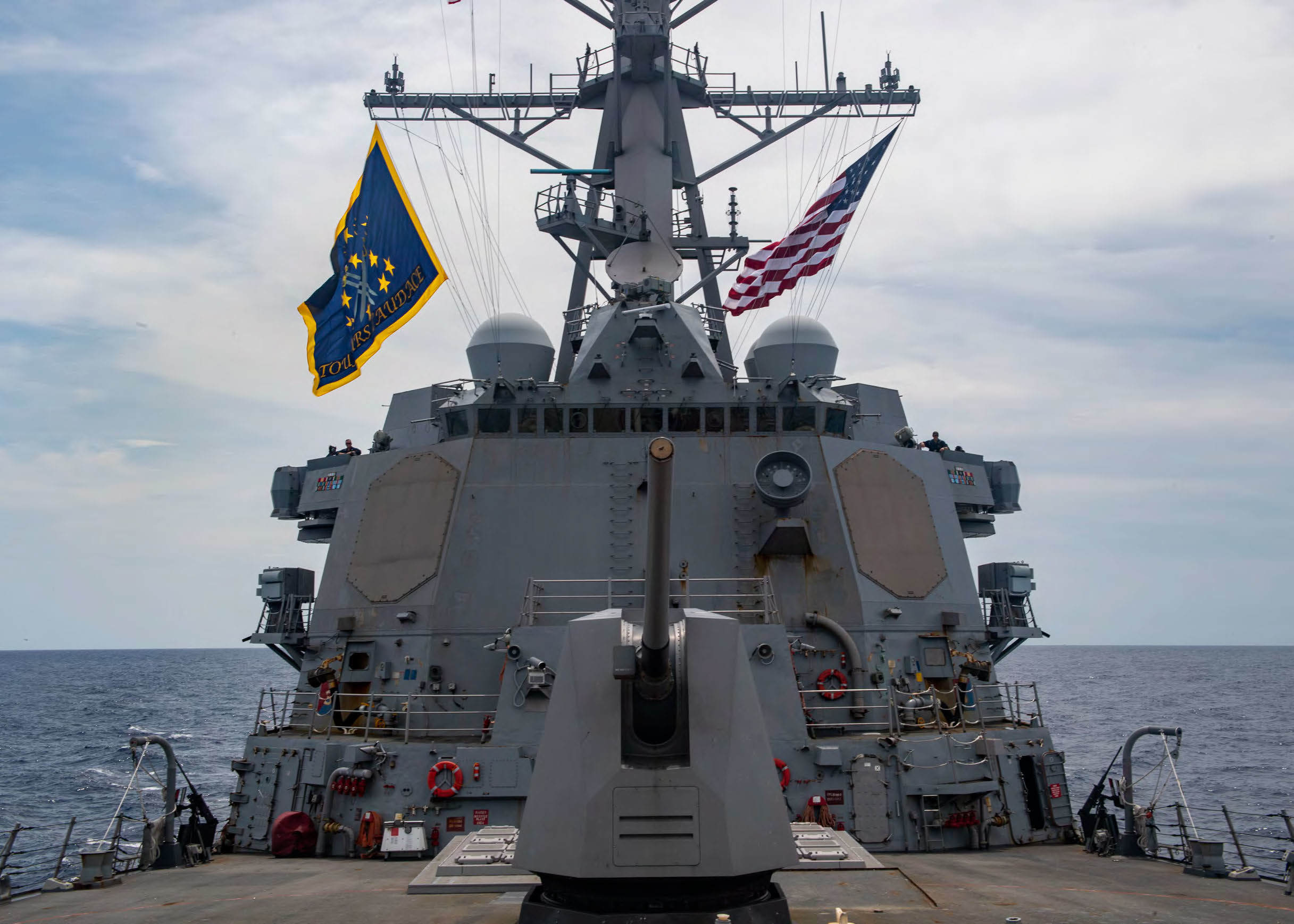
Arleigh Burke-class guided-missile destroyer USS Mustin (DDG-89) conducted a freedom of navigation operation past the Paracel Islands in the South China Sea Thursday, the Navy announced.
Mustin‘s transit near the Paracel Islands “upheld the rights, freedoms, and lawful uses of the sea recognized in international law by challenging the restrictions on innocent passage imposed by China, Taiwan, and Vietnam and also by challenging China’s claim to straight baselines enclosing the Paracel Islands,” Lt. j.g. Rachel Maul told USNI News in an email.
Mustin’s FONOP is the latest in a series of operations this spring designed to counter Chinese encroachment into international or contested waters in the South China Sea.
“All of our operations are designed to be conducted in accordance with international law and demonstrate the United States will fly, sail, and operate wherever international law allows – regardless of the location of excessive maritime claims and regardless of current events,” Maul said.
Chinese military officials took a different view of Mustin‘s operations near the Paracel Islands.
“A US guided-missile destroyer USS Mustin trespassed into Chinese territorial waters off the Xisha Islands without China’s permission on May 28, 2020,” was how Senior Col. Li Huamin, a spokesperson for China’s People’s Liberation Army, described Thursday’s transit.
China claims the Paracel Islands, which it calls the Xisha Islands, as part of its territorial waters and wants foreign ships to request permission before passing within 12 nautical miles of the chain. The U.S. does not recognize China’s claims over the Paracel Islands, which are also claimed by Vietnam and Taiwan, according to the CIA World Factbook.
The PLA’s Southern Theater Command reportedly scrambled air and naval forces to monitor Mustin‘s transit and to warn-off the U.S. ship, according to Li’s statement.
“The U.S. provocative acts seriously violated the international law and China’s sovereignty and security interests, violated the relevant norms of international law, undermined the peace and stability in the South China Sea region, which were evident embodiment of navigational hegemony,” Li said in his statement.
However, China recently has sent its aircraft carrier Liaoning and accompanying strike group through the Miyako Strait between the Japanese islands of Okinawa and Miyako. The strike group then steamed past Taiwan, according to an account posted by the Japan Times.
“Unlawful and sweeping maritime claims in the South China Sea pose a serious threat to the freedom of the seas, including the freedom of navigation and overflight and the right of innocent passage of all ships,” Maul said. “The U.S. position on the South China Sea is no different than that of any other area around the world where the international law of the sea as reflected in the 1982 Law of the Sea Convention provides for certain rights and freedoms and other lawful uses of the sea to all nations. The international community has an enduring role in preserving the freedom of the seas, which is critical to global security, stability, and prosperity.”
In late April and early May, Chinese People’s Liberation Army Navy (PLAN) warships and Chinese Coast Guard vessels tailed Panamanian-flagged drillship West Capella. Malaysian state-owned oil company Petronas contracted West Capella to perform oil exploration in Malaysia’s South China Sea exclusive economic zone. The Navy sent ships to conduct presence operations near West Capella.
“The United States upholds freedom of navigation as a principle. The Freedom of Navigation Program’s missions are conducted peacefully and without bias for or against any particular country. These missions are based in the rule of law and demonstrate our commitment to upholding the rights, freedoms, and lawful uses of the sea and airspace guaranteed to all nations,” Maul said.





